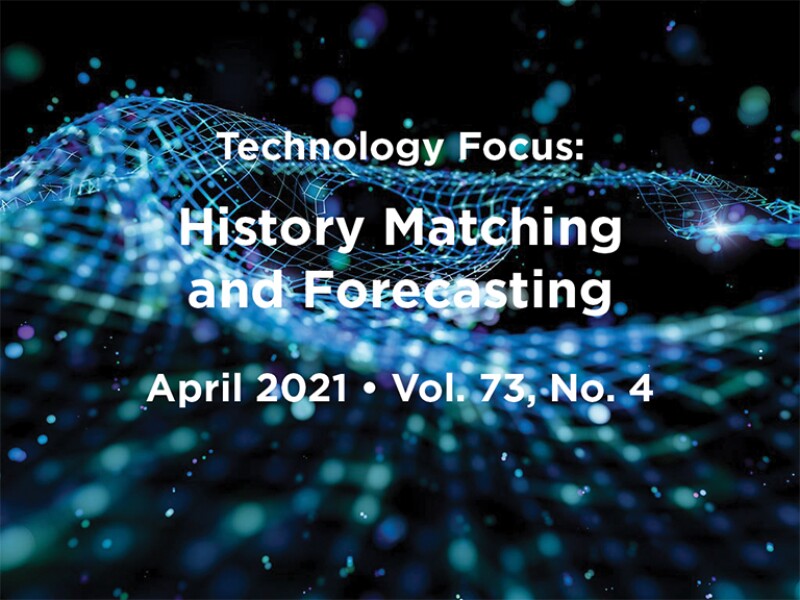In the words of the authors of paper SPE 202460, one of three outstanding SPE conference papers selected by reviewer Gopi Nalla of DeGolyer and MacNaughton for this month’s feature, “As geological and completion complexity of oil and gas fields increases, building a fully representative predictive reservoir model can be arduous to almost impossible.” However, as we see in these papers, new tools and techniques are being developed to match the ability of engineers to meet the challenges posed by assets such as shale reservoirs and maturing fields.
The authors of paper SPE 200466 developed a novel method in which the results of assisted history matching are applied to well-spacing optimization in a shale development, using information extracted from uncertainty and the interpolated maximum net present value. Applied to a real shale well, it is determined by the authors to be reliable enough to apply to other wells.
Paper SPE 202460 exemplifies the accelerating development and popularity of artificial intelligence (AI) in industry applications as its authors outline what they call a top-down approach that uses AI and artificial neural networks to obtain good matching results for a geologically complex offshore Malaysian field.
Finally, the authors of paper SPE 199149 describe a work flow that uses a coupled hydraulic fracturing, geomechanics, and reservoir simulator to identify what they term rate-transient-analysis “motifs,” characteristics that aid in iteration and history matching of unconventional well models.
Thanks once again to all of our JPT reviewers and readers, who make certain that our members, and our industry, remain equipped to adapt to challenging conditions both below and above ground.
This Month’s Technical Papers
Proxy-Based Assisted History Matching and Well-Spacing Optimization in Shale Gas Field
AI, Data Analytics Enable Approach to History Matching in Geologically Complex Field
Work Flow History Matches Numerical Simulation Models of Fractured Shale Wells
Recommended Additional Reading
SPE 201785 Application of Deep Learning Methods in Evaluating Well Production Potential Using Surface Measurements by Abdullah Alakeely, Stanford University, et al.
SPE 200598 Numerical Simulation Guideline of Oil Recovery by Cycle-Dependent Three-Phase Process Using Coreflood Experiments by Hassan Al Zayer, Saudi Aramco, et al.
SPE 202370 Real-Time History-Matched Models for Unconventional Well Ensure Reliable Forecasting and Rewarding Optimization by Arman Vahedi, PetroAus, et al.

Gopi Nalla, SPE, is a senior reservoir engineer with DeGolyer and MacNaughton. He has 18 years of industry experience and previously worked for 12 years with Chevron and 2 years with the Idaho National Laboratory. Nalla holds an MS degree in petroleum engineering from The University of Texas at Austin and a BS degree in chemical engineering from the National Institute of Technology, India. He is a licensed professional engineer in Texas and California and serves on the JPT Editorial Review Committee. Nalla also has served as a reviewer for SPE Reservoir Evaluation & Engineering. He can be reached at gnalla@demac.com.

